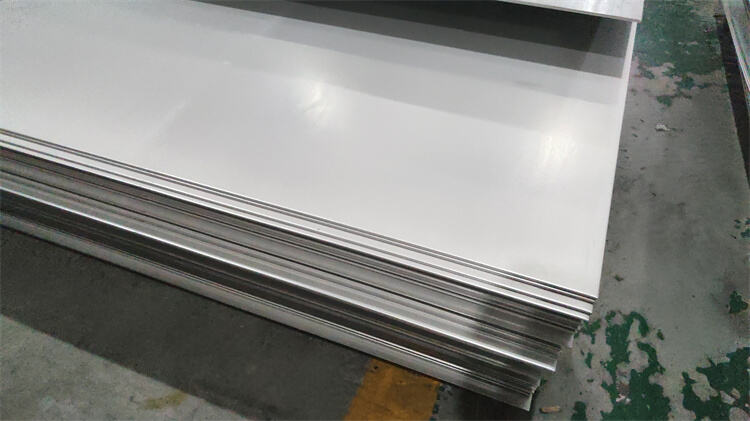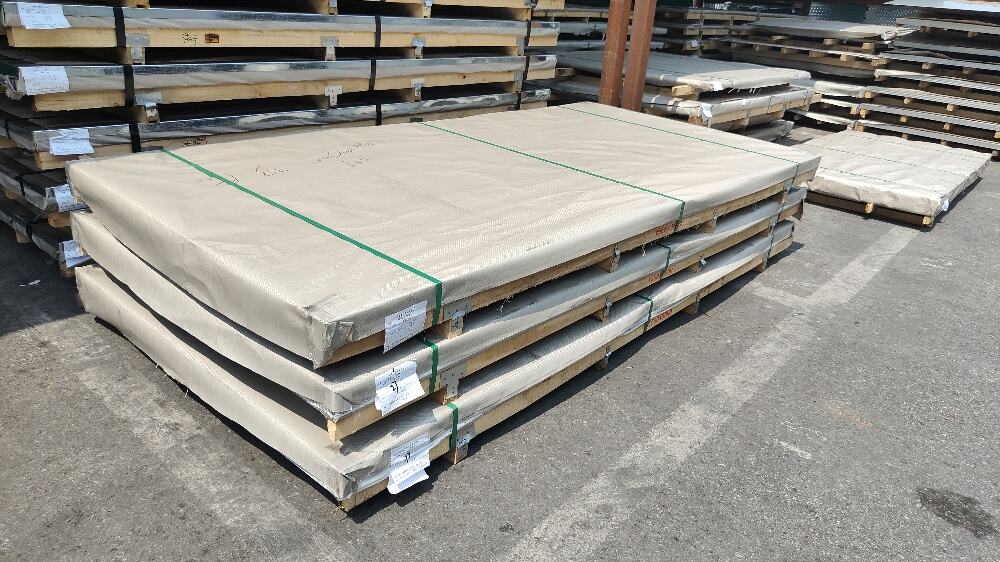In the food processing industry, the choice of materials is directly related to the safety and quality of food. Stainless steel, as a widely used metal material, has become the material of choice for food processing equipment, containers and tools due to its excellent performance and advantages. From tableware to large processing equipment, from small food factories to global food production companies, stainless steel is everywhere. So why can stainless steel stand out among many materials and become the "darling" of the food processing industry? This article will describe in detail why stainless steel is the material of choice in the food processing industry?
Definition And Composition Of Stainless Steel
Stainless steel is a type of alloy steel based on iron with added elements such as chromium (Cr), nickel (Ni), and molybdenum (Mo). Its core characteristic is corrosion resistance, which is mainly due to the addition of chromium. When the chromium content reaches more than 10.5%, a dense protective film of chromium oxide (Cr₂O₃) will form on the surface of the steel, which can effectively prevent oxygen and moisture from further eroding the interior of the metal, thereby giving stainless steel excellent corrosion resistance.
Common food-grade stainless steels include 304 stainless steel and 316 stainless steel. 304 stainless steel contains 18% chromium and 8% nickel, which is suitable for most food processing environments; while 316 stainless steel has additional molybdenum, which has stronger acid and alkali corrosion resistance and is often used in scenarios where high-salt or acidic foods are processed.

Physical Properties:
Stainless steel is not only corrosion-resistant, but also has a number of physical properties suitable for food processing:
- High strength and toughness: Stainless steel has good mechanical strength and can withstand the pressure and impact generated during processing while maintaining structural integrity.
- High and low temperature resistance: Stainless steel is not easy to deform at high temperatures and can be used in high-temperature processing such as steaming and baking; at the same time, it can also maintain stable performance in freezing or low-temperature storage environments.
- Easy to process and shape: Stainless steel can be processed into various shapes by welding, cutting, bending, etc. to meet the diverse design requirements of food processing equipment.
Surface Properties:
The surface of stainless steel is smooth and non-porous, which is particularly important in food processing. The smooth surface is not only easy to clean, but also effectively reduces the attachment of bacteria and microorganisms. In addition, stainless steel can be polished to further improve the surface smoothness, thereby reducing the risk of food residue.
Hygienic Safety Of Stainless Steel In Food Processing
The Primary Guarantee Of Food Safety:
The core goal of the food processing industry is to ensure the safety and hygiene of food. Stainless steel is an ideal choice because of its chemical inertness. Compared with other materials (such as plastics or ordinary carbon steel), stainless steel does not react chemically with acids, alkalis, salts and other ingredients in food, avoiding the release of harmful substances. For example, when processing acidic foods (such as ketchup or citrus juice), stainless steel will not dissolve or release metal ions, thereby ensuring the purity of the food.
Easy To Clean And Antibacterial Properties:
Food processing equipment needs to be cleaned frequently to prevent cross contamination. The surface of stainless steel is smooth and non-porous, making it difficult for food residues and bacteria to adhere. With the right detergent and high-pressure water flow, stainless steel equipment can be easily restored to a clean state. In addition, some special stainless steel surface treatment technologies (such as electrolytic polishing) can further enhance the antibacterial properties and reduce the risk of microbial growth.
Meets Strict Hygiene Standards:
The global food processing industry is subject to strict regulations, such as the U.S. Food and Drug Administration (FDA), the European Food Safety Authority (EFSA), and China's national food safety standards. These standards set clear requirements for the performance of food contact materials, including no release of harmful substances and easy cleaning. Stainless steel, especially 304 and 316 grades, meet these regulatory requirements and are widely used in food contact equipment and containers.

Economical And Durable Stainless Steel
Long-Term Cost-Effectiveness:
Although the initial purchase cost of stainless steel may be higher than some materials (such as plastic or aluminum), its long-term economical performance is unmatched by other materials. Stainless steel equipment has an extremely long service life and almost no frequent replacement. For example, a stainless steel mixer may be used continuously for decades, while plastic or coated equipment may fail due to wear or corrosion within a few years.
In addition, stainless steel has low maintenance costs. Due to its corrosion resistance and easy cleaning, the daily maintenance workload of equipment is small, reducing downtime and repair costs. For food processing companies, this means higher production efficiency and lower operating costs.
Wear And Impact Resistance:
In food processing environments, equipment often needs to withstand heavy impacts, mechanical vibrations or frequent operations. The high strength and toughness of stainless steel enable it to resist these external forces and reduce equipment damage caused by wear or deformation. This is especially important for large food processing equipment (such as conveyor belts and cutting machines).
Recyclability:
Stainless steel is a 100% recyclable material, which not only conforms to the concept of sustainable development, but also brings additional economic benefits to enterprises. Scrapped stainless steel equipment can be recycled and reused to reduce resource waste while reducing the cost of purchasing new materials.
Sustainability And Environmental Advantages Of Stainless Steel
Environmentally Friendly Materials:
In the context of global advocacy of green manufacturing and sustainable development, the environmental protection characteristics of stainless steel make it more attractive. The process of producing stainless steel has been continuously optimized in recent years, and energy consumption and emissions have been significantly reduced. In addition, the ultra-long service life of stainless steel means less resource consumption and reduces the impact of frequent equipment replacement on the environment.
Reduce Plastic Pollution:
Compared with plastics, the use of stainless steel in food processing helps reduce plastic pollution. Plastic containers and equipment may release microplastics or harmful chemicals under high temperature or acidic environment, while stainless steel completely avoids this problem. In addition, the recyclability of stainless steel makes it an ideal choice to replace disposable plastics.
Supporting The Circular Economy:
Waste stainless steel can be melted and reprocessed into new products, reducing dependence on virgin mineral resources. This feature not only reduces the raw material costs of enterprises, but also provides support for the sustainable development of the food processing industry.
Practical Application Of Stainless Steel In Food Processing
Food Processing Equipment:
Stainless steel is widely used in the manufacture of food processing equipment, including mixers, cutters, conveyor belts, baking equipment, etc. These equipment need to withstand complex processing environments (such as high temperature, high humidity, acidic substances), and the durability and stability of stainless steel make it the only choice. For example, in meat processing, stainless steel knives and cutting tables can resist corrosion from blood and fat, while being easy to clean.
Storage And Transportation Containers:
Stainless steel containers are widely used in the storage and transportation of food, such as dairy products, beverages, sauces, etc. Stainless steel storage tanks can maintain the freshness of food and prevent external contamination, while withstanding extreme conditions of refrigeration or high temperature sterilization. In the beer brewing industry, stainless steel fermentation tanks are favored for their corrosion resistance and sealing properties.
Catering And Household Scenarios:
Stainless steel tableware and cookware are popular among consumers for their beauty, durability and easy cleaning. For example, stainless steel pots can remain stable in high-temperature cooking and do not release harmful substances.

Comparison Of Stainless Steel With Other Materials
Stainless Steel And Plastics:
Although plastics are low-cost, their application in food processing is subject to many restrictions. Plastics may release harmful substances under high temperature or acidic environments, and are prone to aging and cracking. Stainless steel does not have these problems, and its service life is much longer than plastics. In addition, plastics are difficult to recycle and have a greater impact on the environment.
Stainless Steel And Aluminum:
Although aluminum is light and has good thermal conductivity, its corrosion resistance is far inferior to stainless steel. Aluminum is easily corroded in acidic or saline environments, and scratches are easily produced on the surface, making it more difficult to clean. Stainless steel is also stronger and more durable than aluminum, making it more suitable for long-term use.
Stainless Steel And Carbon Steel:
Although carbon steel is strong, it is very easy to rust, especially in humid or acidic environments. Stainless steel overcomes this shortcoming by adding elements such as chromium, making it a more reliable choice in food processing. In addition, carbon steel has a rough surface and is difficult to clean, making it unsuitable for direct contact with food.
Stainless steel has become the irreplaceable first choice material in the food processing industry due to its excellent corrosion resistance, hygienic safety, economy and sustainability.
HNJBL is a professional steel manufacturer and supplier. Our company's main products include carbon steel, stainless steel, wear-resistant steel, steel profiles, coated steel, etc. Complete specifications, stable quality, and sufficient quantity.
 +86 17611015797 (WhatsApp )
+86 17611015797 (WhatsApp )
 info@steelgroups.com
info@steelgroups.com
